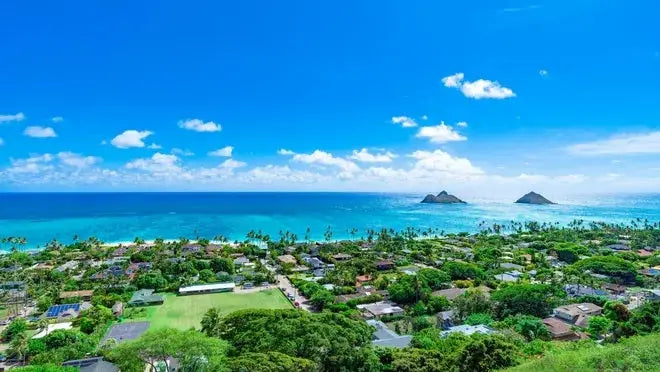
Hawaii Island bill seeks to limit to number of guests in short-term vacation rentals
Share
A move is underway on the Big Island to bring more vacation rentals under county oversight and to limit the number of new units.
Hawaii County Council members Heather Kimball and Ashley Kierkiewicz are sponsoring legislation that would require hosted vacation rentals to register with the county, similar to laws regulating “unhosted” short-term vacation rentals. A hosted transient rental is considered a property where an owner or manager lives on-site, and the unit is rented to an individual or group for less than 180 days.
One of the goals is to curb the growing number of vacation rentals which the sponsors say is reducing long-term housing stock for residents and increasing housing costs and rents.
The draft ordinance is stirring up strong public interest as evidenced by the hundreds of people who signed up for a webinar about it on Nov. 21.
'It's the best medicine for us':Hawaii's Kalaupapa eases pandemic restrictions
Neighbors fighting neighbors?:A 30-day minimum law for Airbnbs has Oahu homeowners split
If the bill is ultimately adopted, transient rental operators would have to pay an initial registration fee and an annual renewal fee and comply with a host of rules. Some of the rules relate to on-site parking, the submission of site and floor plans, contact information for all registered property owners and managers, notification to surrounding properties and more.
Failure to do so could result in $10,000 in fines.
The bill would set a guest limit of no more than two adults per bedroom and an additional two adults for the unit as a whole. Individuals could operate no more than one transient accommodation rental, besides their principal home, unless they’re a licensed realtor.
Commercial weddings, wedding receptions or events would be prohibited unless operators get special permits.
Feedback received on the proposed ordinance has been mixed so far, said Kimball, whose district covers North and South Hilo and Hamakua. Some people are glad that the county is bringing more oversight to transient accommodations because some of those properties create excessive noise and parking issues, diminish the character of neighborhoods, and drive up housing costs.
Others worry the proposed bill will have negative financial consequences if they can no longer operate a transient or vacation rental for whatever reason.
Kimball said the bill contains exemptions and grandfather clauses and is not designed to put anyone out of business.
“We are still allowing people to operate short-term vacation rentals on their own property, and they can start it up at any time. They just have to follow the operational standards and they have to register,” said Kimball.
“We recognize that this is an important way for people to make ends meet.”
The bill would grandfather anyone who has a hosted vacation or transient rental where there is an operator on site. It also grandfathers any hosted rental that was not the owner’s primary residence but was operating as of November.
The bill would exempt people who rent to traveling nurses and students.
Cindy Evans, a County Council member who represents North and South Kohala, said the bill is lengthy and complicated as currently drafted.
“It’s a work in progress. That’s the way it looks to me,” Evans said.
She said the authors are likely including a mountain of details to gauge public reaction and that the final product will probably look quite different.
Evans suggested the measure be streamlined or split it into two bills to make it more digestible.
The Hawaii Tourism Authority supports efforts by Hawaii County to regulate the vacation rental industry, said spokesman Ilihia Gionson.
“We all live in neighborhoods and the extent to which short-term vacation rentals affect those neighborhoods varies wildly neighborhood to neighborhood,” he said.
In some places they work fine. In others they can be burdensome, he said.
“The effective regulation of short-term vacation rentals has been a priority of the Hawaii Tourism Authority. The proliferation of short-term vacation rentals has had a big impact on our kamaaina communities and regulating that is important,” he said.
Kimball said the bill could help ease the Big Island’s severe housing shortage by making it harder for absentee landlords and offshore speculators to gobble up existing properties and market them to vacationers rather than island residents who desperately need housing.